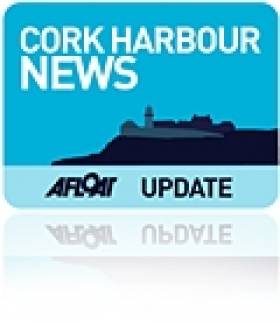Displaying items by tag: Fota Island Wildlife Park
Mystery of Cork's 'Floating Penguins' Revealed
#CORK HARBOUR - Amateur birdwatchers in Cork were in a tizzy last week over the sighting of what appeared to be two penguins floating on an 'ice floe' near Crosshaven, the Cork Independent reports.
The mystery was answered at 'press conference' in popular local haunt Cronin's Bar, where Weitse Buwalda of Salve Marina in Crosshaven – and a friend of Afloat - confirmed that the plastic penguins had been "captured" in the marina before Christmas.
“They were fouling up the place so we shoved them out there on a bit of polystyrene to keep the place clean,” he said with tongue firmly in cheek.
The sightings had sparked much debate among locals, with concerns that the Antarctic avians had broken out of nearby Fota Island Wildlife Park - though this was denied by park officials, who said their full penguin complement was accounted for.
It's the second time in six months that Cork's penguins have gone viral on the internet, following the video of the 'lonely penguin' at Fota Island last July, which shows the little one abandoned by his family at dinner time:
The Cork Independent has more on the story HERE.





























































